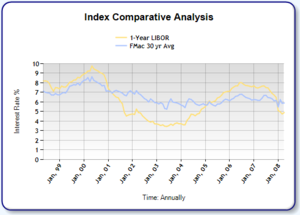Last Wednesday’s Seattle PI featured a front page article by Aubrey Cohen: Home values drop by double digits. According to data by the NWMLS, the median sales price for houses in August 2008 for Seattle was $464,800; a 7.8% drop from July 2008 of $428,500 and 14.5% drop when compared to the median sales price from August 2007 of $501,000. King County also dealing with a double digit drop. The median sales price for houses in King County in August 2008 was $423,950; a 4.7% drop in one month with July 2008 at $445,000 and a 11.2% drop compared to August 2007 at $447,345.
If you’re a home buyer in this market, you’re in the drivers seat…and sitting pretty at that. Listings are up 18.3% in King County (condos and houses) as compared to August of 2007; giving you plenty of choices. Sellers are more likely to contribute towards your closing costs and prices are more attractive than recent years.
What if you all ready own a home and you’re considering refinancing? Even though your home is your castle, the appraiser must use 3 recent sales (over the last 6 months is preferred) of homes similar to yours to come up with an appraised value. This can be a little tricky with fewer sales AND lower sales prices. Using the King County figures above and rates I’ve quoted at Mortgage Porter, this is how a refinance could be impacted:
Joe and Suzy purchased their home in King County for $447,345 in August 2007 utilizing a 30 year fixed mortgage at 6.625% with a loan amount of $357,900 (20% down payment). They are now interested in taking advantage of our lower rates and decide to refinance since rates are close to a full 1% lower with zero points and they’re going to stay in their home for at least the next five years. They have not paid additional towards their principal and their current balance is now around $354,250 with a principal and interest payment of $2,291.67.
An appraisal reveals that their home, based on what others like theirs have recently sold for, is now worth $423,950. The best priced rate/term refinance (assuming perfect credit) is an 80% loan to value. 80% of $423,950 is $339,160. If Joe and Suzy want to drop their rate by one point, they would need to bring in $15,000, not including closing costs if they want to avoid private mortgage insurance. (Second mortgages are now pretty tough to come by these days).
Joe and Suzy’s home may be worth more than average. Loan originators do not know what the value will be until we receive the appraisal. I do have some resources available (such as researching comps via the title company) however, it’s just a rough idea. Be wary of any loan originator who promises you that your home value will be perfect for a refinance.
Joe and Suzy’s options (if they want to refi) are:
-
Bring in $15,000 plus closing costs (approx. $2600) to closing to pay down principal to 80% of present value. Principal and interest payment = $2,033.44 – based on 30 yr at 6.00% at 0 pts (apr 6.063). A savings of $258 per month, at a cost of $17,600, Joe and Suzy really need to decide if this is the best use of their money. Based on their monthly savings, they’ll break even in approx. 5 and a half years.
-
Private mortgage insurance. Paying off the entire mortgage balance plus closing costs provides a loan to value of approx. 85%. Principal, interest and mortgage insurance based on 5.875% at 0.75% pts (apr 6.005) = 2,227.70. This is a monthly savings of $63.97. Suzy and Joe do not have to bring in $15,000 to pay down their principal, however it will take almost 7 years to break even on the cost of this refinance.
-
Rates with LPMI (lender paid mortgage insurance) are not competitive for this scenario.
-
FHA has monthly and upfront mortgage insurance. Unless their motivations are other than reducing their rate, this is not a valid option for this scenario.
Even if our local market has hit bottom, appraised values will be impacted for several months until home values begin to appreciate. Appraised values are a reflection of what has sold in the past. Appraised values may continue to trend lower for refinances.
Glenn Crellin, director of Washington Center for Real Estate Research at Washington State University states (from Aubrey Cohen’s article) regarding the recent drop in rates from the Fannie/Freddie takeover his expectation is:
"those decline in rates are going to be relatively short term."
And to those who are trying to get the "bottom" of the market for home prices, he says it’s "nearly impossible". Let’s face it, we really won’t know where the bottom is until prices are heading back up.
If you are considering refinancing, I do recommend that you contact your mortgage professional soon and "be real" about your home value. I don’t encourage waiting with median sales price declines at 4.7 (King County) to 7.8 (Seattle) per month as it’s eating away at your equity and refi options.
If you are considering buying a home, proceed with getting preapproved so you’re ready to make an offer should you find the home you’re looking for.
Related Post:









Recent Comments